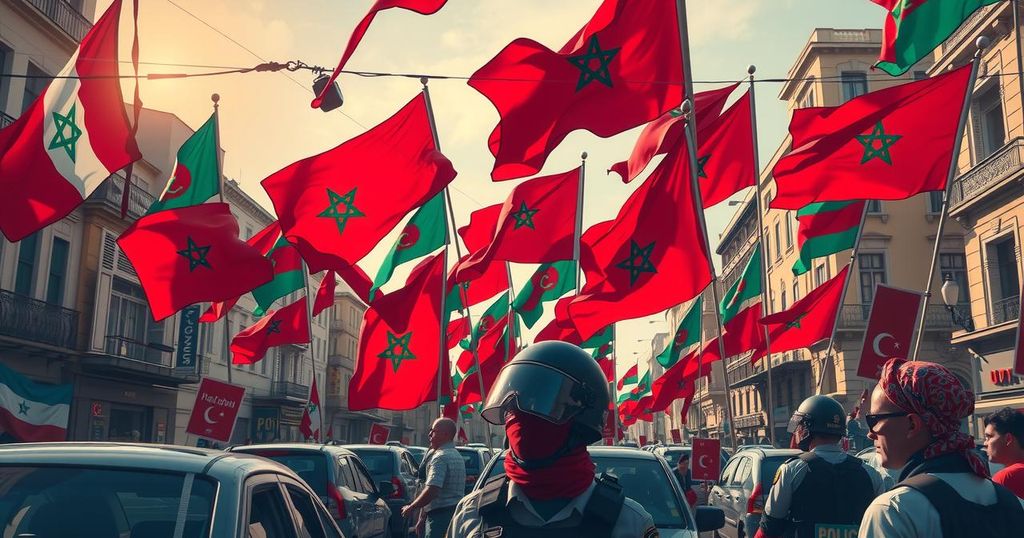Moroccan authorities blocked pro-Palestine protests against the Maersk Nexoe, suspected of carrying F-35 components to Israel. Activists faced police repression while calling for a boycott, driven by escalating tensions over Morocco’s diplomatic relations with Israel amid its ongoing conflict with Gaza. Upcoming demonstrations are planned in Tangier as public dissent grows.
Protests erupted in Morocco regarding a Maersk vessel suspected of carrying components related to F-35 fighter jets intended for Israel. Authorities restrained numerous pro-Palestine activists from accessing the port of Casablanca, where the Maersk Nexoe was allegedly docked. Demonstrators gathered near the main train station, expressing their intentions peacefully yet were ultimately halted by police at a secondary barricade, following initial success at the first line.
Significant support arose from Morocco’s largest labor unions, UMT and CDT, which called for a boycott of the Maersk ship, potentially disrupting its operations. Notably, local activist Sion Asidon reported that authorities have increasingly restricted protests, highlighting a recent incident in Meknes where student demonstrations were impeded for multiple days.
Despite police presence, Friday’s gathering continued for more than two hours, centered on the Maersk Nexoe, confirmed by Vessel Finder to be in the port. Investigative reports allege that Maersk facilitates the transfer of F-35 parts to Israel, originating from the US-flagged Maersk Detroit, which is believed to be on a route to Nevatim Air Base in Israel.
Pro-Palestinian groups speculate the shipment includes essential tools for F-35 maintenance, with Asidon noting the critical nature of such repairs for aircraft involved in military actions in Gaza. While Maersk maintains that the shipment is not destined for Israel, the tranquility of the protest was marred by calls for the government to respect public opinion regarding the maritime transport of military materials.
During the demonstration, activists displayed placards urging the Moroccan government to block the Maersk ship, driven by concerns over complicity in perceived genocide. Support was shown for Yemeni efforts disrupting Israeli-related maritime trade, and praise was directed towards dockworkers’ refusal to assist in the vessel’s unloading.
Historically, opposition in Morocco towards Israel has intensified since the conflict in Gaza escalated in October 2023, leading to repeated calls for severing ties with Tel Aviv. Although Morocco normalized relations with Israel in 2020, public sentiment has markedly shifted, pushing for stronger action from the Moroccan government amidst ongoing diplomatic tensions.
On April 20, protesters plan to convene in Tangier as the Maersk Detroit is expected to arrive, anticipating heightened demonstrations aimed at obstructing perceived military supply routes to Israel.
Protests in Morocco highlight growing public discontent regarding the country’s maritime transport of military components to Israel. Activists face increasing state repression as they demand accountability and cessation of support for military actions in Gaza. With sentiments against normalization with Israel escalating, further demonstrations are planned, signifying a profound shift in public opinion. This issue remains significant as opposition continues to call for decisive actions from the Moroccan government.
Original Source: www.newarab.com






